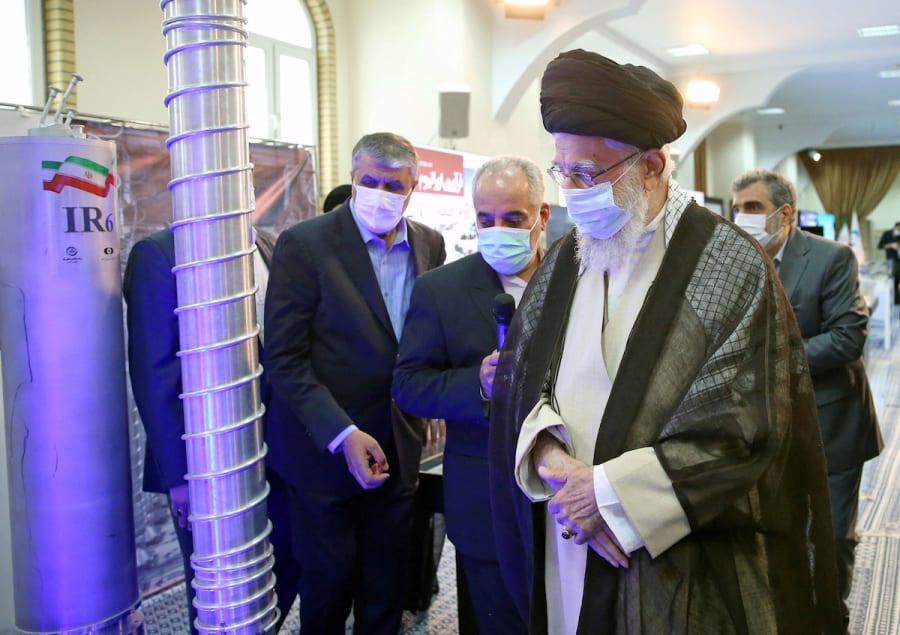Iran vows to continue uranium enrichment
Recent announcement comes after reports that Tehran had slowed down the enrichment process amid indirect talks with US

The head of Iran’s Atomic Energy Organization, Mohammed Eslami, said the country would continue its uranium enrichment in accordance with domestic Iranian law.
The senior Iranian official announced the nation's continued commitment to enrichment during an event where the ayatollah regime boasted about its “nuclear achievement” by displaying an allegedly domestically produced Celsium-137 radionuclide.
"Our nuclear enrichment continues based on the strategic framework law," said Eslami with a reference to supportive Iranian legislation titled: “Strategic Action Plan to Lift Sanctions and Protect Iranian Nation’s Interest.” The Iranian parliament passed the bill in December 2020.
Eslami stressed that Tehran views its nuclear ambitions as an asset of strategic importance.
“Our enemies were and are against Iran’s nuclear industry, but they all should know that the nuclear industry is a strategic industry,” Eslami stated.
The ayatollah regime’s strategic attachment to nuclear power is not a coincidence. Tehran noted that a nuclear-armed North Korean regime is still in power while the regimes of former Iraqi and Libyan despots Saddam Hussein and Muammar Gaddafi collapsed after they gave up their nuclear ambitions.
The recent announcement that Iran will continue uranium enrichment comes after reports that Tehran had slowed down the enrichment process amid indirect talks with the United States on reaching a potential nuclear agreement. In addition, Washington and Tehran have reportedly also discussed a possible arrangement involving the release of prisoners in exchange for unfreezing of some Iranian assets.
The U.S. Biden administration recently agreed to unfreeze Iranian assets worth some $6 billion in South Korea and officially hopes such an agreement with the Iranian regime would enable a more comprehensive agreement between Iran and the world powers.
However, critics in America and elsewhere have warned that the Iranian regime will likely use the released funds to step up its terror activities across the Middle East and globally, including providing drone support to the Russian war effort in Ukraine.
Saeed Ghasseminejad, senior advisor and financial economist for FDD, the Foundation for Defense of Democracies, recently criticized Washington for appeasing the ayatollah regime in Tehran.
“The significant increase in Iran’s oil exports and production is the result of the administration’s policy of maximum deference. As Washington’s financial leverage over Tehran erodes, proponents of appeasement argue that conciliating the regime is the only way to avoid war. They use a crisis of their own making to justify a policy that undermines U.S. national interests,” Ghasseminejad stated.
Earlier in August, Israeli Prime Minister Benjamin Netanyahu warned that a potential American-Iranian agreement would fuel continued Iranian terrorist activities across the Middle East and beyond.
“Arrangements that do not dismantle Iran's nuclear infrastructure do not stop its nuclear program and only provide it with funds that will go to terrorist elements sponsored by Iran,” the Israeli premier warned.
The ayatollah regime officially denies that it has any ambitions to acquire nuclear weapons and has stressed that it merely seeks nuclear energy for peaceful civilian purposes.
In February, inspectors from the United Nations Atomic Agency warned that Iranian uranium enrichment had reached dangerously close to nuclear bomb capability.













